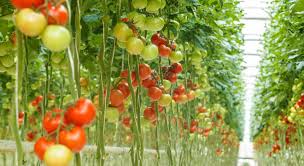|
Sub-Saharan Africa’s farming sector has grown faster than anywhere else in the world with a 4.6 percent agriculture GDP growth rate from 2000 to 2018
|
|
KIGALI, Rwanda, August 8, 2019/ — In partnership with the African Union, leaders of four multilateral agencies – The African Development Bank, the Food and Agriculture Organization of the United Nations (FAO), the International Fund for Agricultural Development (IFAD) and the World Bank– called a high-level meeting with development partners on August 5-6 in Kigali, Rwanda at the first Africa Food Security Leadership Dialogue (AFSLD). The event focuses on concrete ways to strengthen and accelerate their support to food security programs in Africa and help African agriculture adapt to climate change through increased partnerships and coordination.
Sub-Saharan Africa’s farming sector has grown faster than anywhere else in the world with a 4.6 percent agriculture GDP growth rate from 2000 to 2018. But about 20 percent of Africa’s population (256 million people) are facing severe food insecurity. The situation is getting worse because of the negative impacts of climate change and conflicts. Extreme weather events such as droughts and floods have become more frequent and prolonged, leading to diminished productive capacity of the land and loss of natural capital. In addition to that, farmers face several significant climate risks, especially in rainfed agriculture and pastoral production systems. The net effect is that per-capita food production is declining given a rapidly growing population, making food less available and accessible to a significant portion of the population. The number of undernourished people in most sub-regions has been on the rise again since 2014 and if this trend continues the hard-won gains of previous years will be lost. Attended by more than 250 high-level decision makers including 28 Ministers from across the continent, Nobel laureates, leading technical specialists in Africa and high-level representatives from international organizations such as the African Union, the Regional Economic Communities (RECs), United Nations’ agencies, the Consultative Group for International Agricultural Research (CGIAR), bilateral development partners, and eminent personalities, the AFSLD concluded with a joint Communiqué, urging development partners to strengthen their coordination efforts to better support countries to accelerate progress towards their collective food and nutrition security goals as envisioned in the Comprehensive Africa Agriculture Development Program (CAADP). Acknowledging the urgency of the situation, the AFSLD partners agree to scale-up their collaboration, including joint planning and programming, co-financing and parallel-financing, and joint analytical and advisory activities in addressing African food security issues in the context of climate change. They also agree to commit financial and technical support that is commensurate to the size of the food security challenge, to use their convening power to leverage financing for adaptation of Africa’s agriculture and food systems to climate change, and to conduct regular joint portfolio reviews to assess progress on the agreed technical, institutional, and policy actions. At technical level, they will help adapt Africa’s agriculture to climate change, expand farmers’ access to climate-smart technologies and formal markets for food commodities and products, and support investments in agribusiness and build effective food systems that can mitigate hunger and provide inclusive income and livelihood opportunities. At institutional level, they agreed to deepen collaboration with the AU, the RECs, national governments, the private sector, civil society organizations and the science and knowledge communities to help harmonize approaches and outputs, reduce duplication, and increase impact at scale. Finally, at policy level, they will help African countries to align national agricultural policies with climate change adaptation targets and will support them to implement climate-smart policies and programs for food and nutrition security. |
Welcome!Log into your account



















